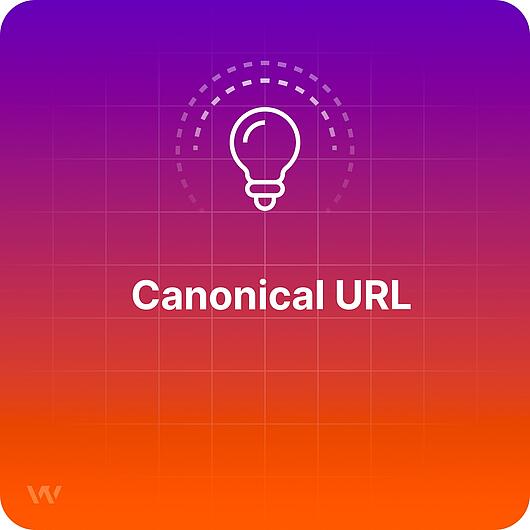- Why Us?
- Features
White Label
For SaaS Platforms & Agencies
Provide our complete analytics suite to your clients, directly within your own interface and with your/their own branding. Discover Analytics-as-a-Service and White Label Analytics. Great benefit, minimal effort.
- Pricing
- White Label
- Success Stories
- ResourcesGetting Started
Canonical URL

What is a canonical URL?
A canonical URL represents the URL of the page that Google thinks is most representative from a set of duplicate pages on your site, or even pages with minor changes in filtering.
What type of links can be highly similar or duplicate on the website?
There are various solid grounds to have different URLs that point to the same page or to very similar pages at different URLs, such as:
- Using dynamic URLs. If the website is an eCommerce offering multiple filters to find the right product, there may be a lot of URLs for the same product.
Example of similar URLs pointing to the same page through dynamic URLs:
- https: //www.yourwebsite.com/products/category=phone-cases&color=black
- https: //www.yourwebsite.com/phone-cases/bestsellers?gclid=1234
- https: //www.yourwebsite.com/phone-cases/black/black-phone-case1.html
This use-case is similar for other filtering options as well, or for blogs with posts under multiple categories.
Supporting various device types:
https: //yourwebsite.com/best-deals/phone-cases
https: //m.yourwebsite.com/best-deals/phone-cases
https: //amp.yourwebsite.com/best-deals/phone-cases
Having the same content for http vs. https variants, www vs. non-www or even links like yourwebsite.com/ vs. yourwebsite.com
Why should a website use canonical URLs?
Duplicate content has a negative impact on the website's ranking and having the same page accessible through multiple links, even though it is for filtering or device type reasons, Google still sees them as duplicate versions of the same page. Once the crawlers identify multiple pages pointing to the same page, they will choose a single URL as the canonical version and crawl it, and all other URLs will be considered duplicates and crawled less (or it can even lead to penalties)
- In order to avoid unpleasant challenges in terms of SEO, a website owner can explicitly choose a canonical page in a set of duplicate/similar pages. This is highly recommended because it helps the site:
- To define which URL people should see in search results (e.g., the main product page, not a filtered page)
- To simplify tracking analytics for a page, instead of checking all URLs metrics and sum them up

